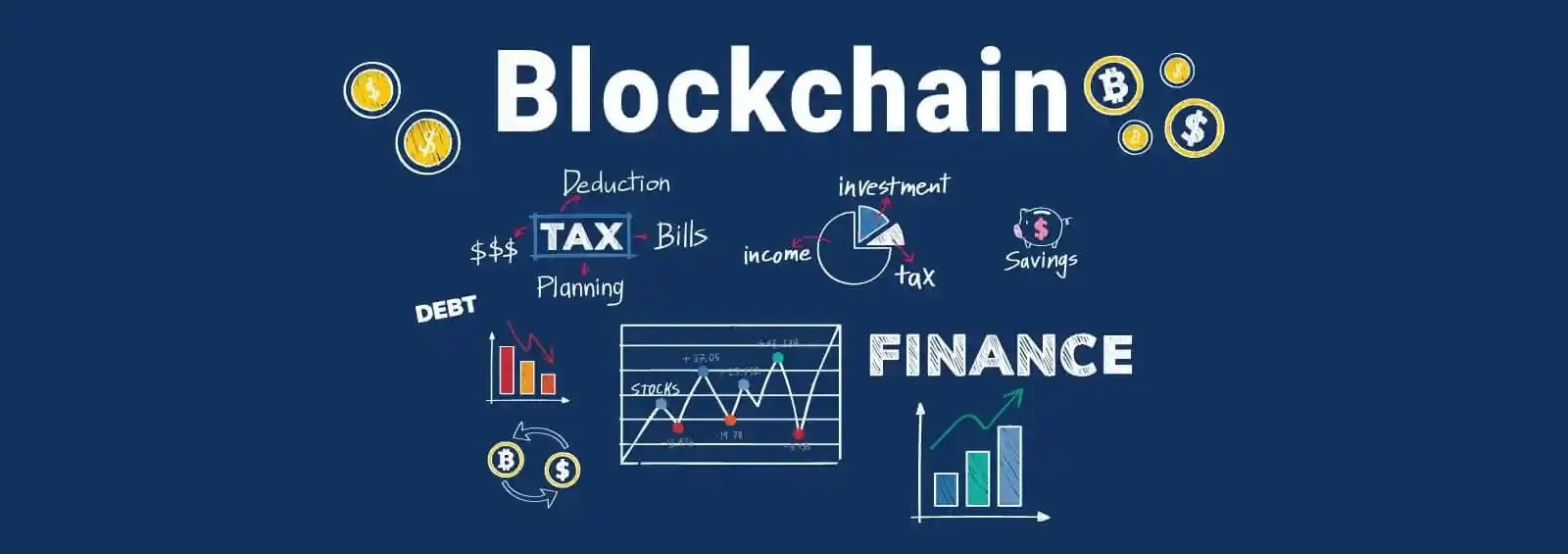Table of Contents
Blockchain in finance is poised to revolutionize the industry by 2030. This transformative technology promises enhanced security, transparency, and efficiency in financial transactions and operations. By decentralizing and streamlining processes, blockchain reduces costs, mitigates fraud, and fosters stakeholder trust.
As financial institutions and fintech companies increasingly adopt blockchain, we can anticipate a significant shift in how financial services are delivered, making the future of finance brighter and more secure.
The Role Of Blockchain In Finance
Blockchain in finance offers unparalleled security, transparency, and efficiency. Cutting out middlemen lowers expenses and accelerates the transaction process. Smart contracts automate processes, enhancing reliability and trust.
With its decentralized nature, blockchain minimizes fraud and increases data integrity. As the technology evolves, its revolutionary impact on finance will grow, leading to a more robust and equitable financial system by 2030.
The Future Of Blockchain In Finance

Blockchain is on track to change the way financial transactions are conducted, providing greater security, transparency, and efficiency. From digital currencies to smart contracts, blockchain technology is revolutionizing the financial system, making it more secure and efficient.
Emerging Blockchain Trends Poised to Transform the Future of Finance:
Revolutionizing Payment Systems
Blockchain technology shows significant potential in revolutionizing payment systems. By removing intermediaries, blockchain-based payment systems offer faster, more secure, and cost-effective cross-border transactions. For instance, Ripple, a global payment network built on blockchain, enables financial institutions to process payments in real-time with minimal fees, offering a glimpse into the future of financial transactions.
As blockchain technology becomes more widely adopted, it has the potential to transform our daily payment processes and various other transactions. This will help businesses and individuals easily and efficiently transact across borders.
Transforming Asset Management

Another industry that stands to significantly benefit from blockchain technology is asset management. Smart contracts, programmable agreements that automatically execute when predefined conditions are met, can automate various processes to reduce operational costs, improve compliance, and mitigate risks in asset management.
Additionally, tokenization—the conversion of real-world assets into digital tokens on a blockchain—can boost liquidity, enable fractional ownership, and broaden access to investment opportunities. As blockchain technology continues to evolve, it is set to transform the asset management industry by enhancing transparency and improving efficiency.
Revolutionizing Insurance
Blockchain technology has the potential to completely transform the insurance industry by streamlining claims processing, increasing transparency, and reducing fraud. By storing policy and claims data on a blockchain, insurers can automate the claims process using smart contracts and ensure that the data is tamper-proof.
Furthermore, blockchain can improve risk assessment and insurance pricing by providing access to a vast array of verifiable data. As the insurance industry embraces blockchain, it will lead to more customer-centric and efficient processes, benefiting both insurers and policyholders.
Enhancing Trade Finance

Trade finance, a set of financial techniques that help mitigate the risks in international trading, often struggles with slow processes, extensive paperwork, and the risk of fraud. Blockchain technology can help address these issues by digitizing trade documents, streamlining procedures, and providing a secure, tamper-proof environment for international trade.
Platforms like Marco Polo leverage blockchain technology to deliver faster, more transparent, and more secure trade finance solutions. The adoption of blockchain in trade finance is anticipated to enhance collaboration among trading partners, making the entire process more efficient, transparent, and trustworthy.
Ensuring Regulatory Compliance
In financial management, regulatory compliance is essential. Blockchain can standardize and automate regulatory compliance, simplifying financial operations and ensuring adherence to evolving regulatory frameworks and laws. Blockchain improves regulatory compliance across the financial sector by digitalizing assets and enhancing fraud detection capabilities.
Its ability to provide transparency and security will make blockchain a transformative tool in ensuring regulatory standards are met efficiently and effectively.
Better Banking Services
Blockchain has significant potential to enhance access to banking services, particularly in developing regions where traditional infrastructure is limited. By eliminating obstacles to opening bank accounts, blockchain-based solutions can unlock new economic opportunities for individuals who were previously excluded from the global financial system.
Additionally, blockchain technology will enable access to non-traditional financial services, including microfinance, peer-to-peer lending, and digital-only banks (neobanks). This can be especially advantageous for small businesses and entrepreneurs who previously didn’t have access to these services.

Blockchain in Finance: A Bright Future by 2030
The revolutionary impact of blockchain in finance by 2030 promises a bright future, characterized by unprecedented security, transparency, and efficiency. As the technology continues to mature, it will redefine financial transactions, streamline operations, and foster greater trust in the financial system.
Embracing blockchain in finance will not only enhance current practices but also pave the way for innovative solutions, ultimately transforming the industry for the better.





